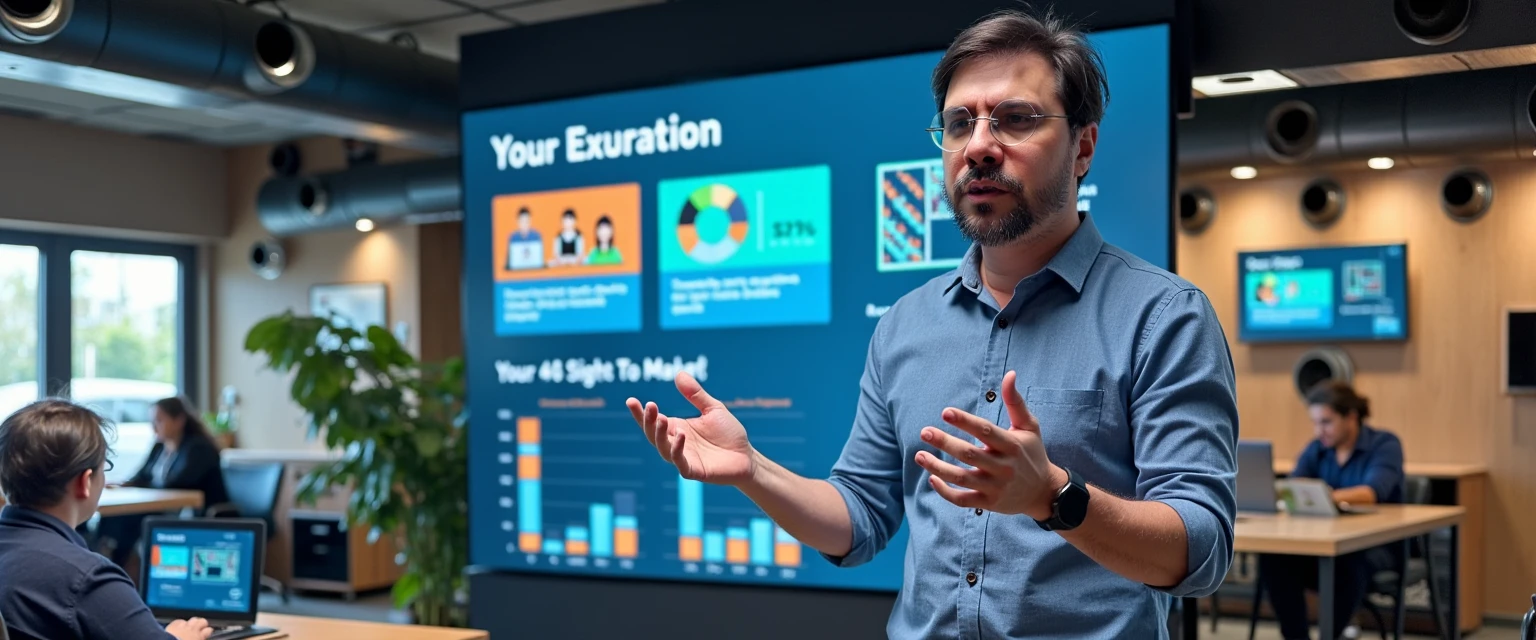AI Radar: From Google's Billion-Dollar Investment to R$'s $100 Million Sales Jump – The Last 24 Hours Overview
May 13, 2025 | by Matos AI

The artificial intelligence ecosystem continues its rapid evolution, with movements ranging from large corporate investments to practical applications that are already transforming Brazilian businesses. In the last 24 hours, we have seen a series of developments that reinforce my conviction that we are only beginning to understand the true potential of AI to generate economic and social value.
Google expands its bet on AI startups
Google has taken another significant step towards fostering the startup ecosystem by announcing the AI Futures Fund, an initiative that goes far beyond simple financial support. The fund will offer early access to DeepMind's AI models, expert support, cloud credits and, in some cases, direct investment. Unlike the traditional accelerators that I have known and led throughout my career, the model does not operate in fixed cohorts or cycles – applications are always open, with continuous investments adapted to the specific needs of each startup.
Second information from Olhar Digital, this initiative builds on other recent efforts by Google, including a $120 million commitment to AI education, a $120 million fund for researchers, and an accelerator for NGOs focused on generative AI.
Join my WhatsApp groups! Daily updates with the most relevant news in the AI world and a vibrant community!
- AI for Business: focused on business and strategy.
- AI Builders: with a more technical and hands-on approach.
This move by Google demonstrates something I’ve been observing for years in more mature ecosystems: the critical role of large technology companies in developing startup ecosystems. By providing not just capital, but also proprietary technology and mentorship, Google creates a virtuous cycle of innovation that benefits all parties.
Applied AI generates R$100 million in additional revenue in just 8 months
While we discuss the future of AI, Brazilian companies are already reaping concrete results. The case of Grupo Elfa, which distributes medical and hospital products, is emblematic: the implementation of an AI solution called CotAI to automate responses to quote requests. generated a turnover increase of more than R$100 million in just eight months.
According to report from Folha de S.Paulo, the tool automates the pricing process, reducing response time to customers from 40 to just 5 minutes – an improvement of 87.5% that significantly increases the chances of closing sales.
This is exactly the type of practical application of AI that I advocate in my mentoring sessions: focusing on solving real business problems, with clear metrics and a direct impact on the bottom line. It’s not about using AI because it’s trendy, but about identifying operational bottlenecks where technology can generate concrete value.
From Candy Crush to animal communication: innovations that push boundaries
The versatility of AI continues to impress. Swedish developer King, responsible for the Candy Crush phenomenon, adopted artificial intelligence to review and update the game's more than 18,700 levels, allowing developers to focus on creating new challenges while the AI keeps existing levels interesting for new and returning players alike, as reported by Olhar Digital.
On a completely different front, the Chinese company Baidu has filed a patent for a system that aims to convert animal vocalizations into human language using artificial intelligence. According to the CNN Brazil, the project aims to process sound and behavior data to translate emotional states into semantic meanings, representing a fascinating intersection between technology and animal understanding.
These seemingly distant applications show how AI is penetrating sectors and uses that we could not even imagine a few years ago. At a time when many still think of AI only as chatbots or productivity tools, we are seeing its creative uses expanding horizons in entertainment and behavioral research.
Sectoral advances: from legal practice to the Middle East
In the legal field, research by the American Bar Association reveals a significant growth in AI adoption by lawyers in the US, rising from 15% in 2022 to 36% in 2025. How reported by UAI, the most widely used tools include automated contract review and AI-based research assistants, although ethical concerns remain regarding their use.
Meanwhile, on the geopolitical stage, Saudi Arabia takes an ambitious step with the launch of Humain, a state-owned AI company with an impressive investment of US$ 940 billion. According to the Poder360, the company is expected to develop technologies in the sector and increase data center infrastructure, a move that signals the global race for leadership in AI.
This astronomical amount invested by the Saudis makes us reflect on Brazil’s positioning in this technological race. In my interactions with public policymakers, I have emphasized the need for a coordinated national strategy for AI, which combines strategic public investments with incentives for the private sector.
Challenges and resistance: the necessary counterpoint
Not everything is rosy in the advancement of AI. The challenge of balancing technological innovation with environmental sustainability is highlighted by experts who point out the significant electrical consumption of data centers and the electronic waste generated as growing concerns. As reported by Estadão, despite the challenges, AI can also help solve environmental problems, as long as its use is cautious and sustainable.
We also see significant resistance to AI adoption from some groups. BBC News reports that many people express resistance to the use of AI for a variety of reasons, including concerns about environmental impact and lack of human connection. This resistance points to a larger debate about the role of artificial intelligence in society and its ethical implications.
Finally, in the corporate use of AI for sales, Terra report highlights that 26% of companies are not yet prepared to effectively use this technology, according to the 2023 OTRS Spotlight survey. Lack of preparation and excessive use are among the most common mistakes, reinforcing the need for cautious and personalized approaches to AI implementation.
Analysis: A rapidly evolving ecosystem
The panorama of the last 24 hours reflects an AI ecosystem in full effervescence, with significant movements both on the supply side (investments, development of new solutions) and on the demand side (adoption by companies, resistance and challenges).
The consolidation of use cases with measurable return on investment, such as that of Grupo Elfa, is noteworthy. After years of promises and proofs of concept, we are finally seeing concrete examples of value generated by AI in Brazilian business contexts.
At the same time, the disparity in investments between countries such as Saudi Arabia (US$1.4 billion) and Brazilian initiatives highlights the risk of falling behind in the global technology race. In my experience working with innovation ecosystems in several countries, I realize that Brazil has all the ingredients to stand out – talent, market, creativity – but it lacks a coordinated and ambitious national strategy.
Resistance to the use of AI, on the other hand, should not simply be dismissed as technophobia, but understood as a necessary counterpoint that forces us to reflect on the ethical, environmental and social aspects of this transformation. As I have argued in my talks on the future of work, we need an approach that puts humans at the center of this technological revolution.
Conclusion: Preparing for What’s Ahead
The outlook over the past 24 hours reveals a rapidly evolving AI ecosystem with substantial opportunities for those who are prepared. Whether you are an entrepreneur looking to build an AI startup, an executive looking to implement solutions in your company, or a professional looking to adapt to this new reality, the time to act is now.
In my mentoring sessions with startups and executives, I have emphasized three fundamental pillars for navigating this scenario:
- Focus on real problems: Seek to apply AI to solve concrete business bottlenecks, as Grupo Elfa did
- Continuous learning: Develop a culture of experimentation and constant updating on new technologies
- Human-centered approach: Keep people at the center of strategies, using AI to augment human capabilities, not replace them
The Google AI Futures Fund also reminds us of the importance of access to resources and expertise. Whether you’re building an AI startup or implementing solutions in your company, seek out opportunities to connect with funding and acceleration initiatives that can help you advance your journey.
I will continue to closely monitor these developments and share analysis and insights in my weekly newsletter and in the AI for Business and AI Creators WhatsApp groups. The future of AI is being written now, and we all have the opportunity to be co-authors of this story.
✨Did you like it? You can sign up to receive 10K Digital's newsletters in your email, curated by me, with the best content about AI and business.
➡️ Join the 10K Community here
RELATED POSTS
View all



